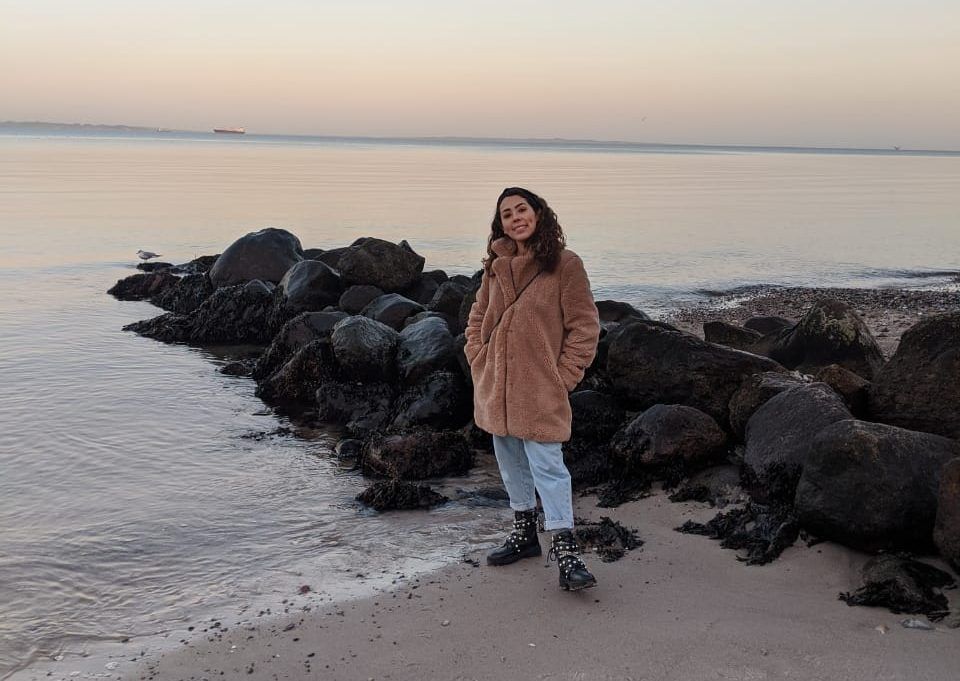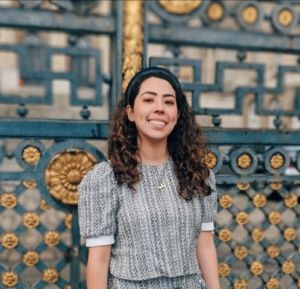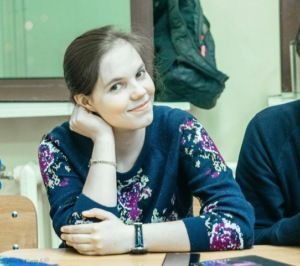The spring and summer of 2020 has been especially tough for international students studying at Danish universities.
Due to the travel restrictions, they could neither return to their homelands to visit their families (and vice versa) nor travel around neighbouring countries.
Even though the situation eventually improved for EU students, those from further afield had to make peace with the fact they were pretty much stuck in Denmark for the foreseeable!
Tales of survival
For most of them keeping up with their studies was the least of their worries. Faced with extreme uncertainty, many had to figure out what to do with their lease contracts and future studies. For some it was a little overwhelming, leaving them vulnerable to waves of depression.
But ultimately it was a tale of survival, and now, emerging on the other side of the Coronavirus Crisis, many have had time to reflect on their longer than anticipated stay in Denmark.
CPH POST recently caught up with four students, from four different countries across three continents, to ask them to share their stories of how the coronavirus meddled with their summer plans.
AILLY DOU
Age: 28
Nationality: Chinese
Duration in Denmark: Year and counting
Ailly, who is from China, has just finished her first year in her master’s in journalism, media and globalisation at Aarhus University and the Danish School of Media and Journalism. This summer, she wanted to fly back to China, and then afterwards take a brief trip around Europe with her family.
Why have you decided to stay in Denmark?
I simply did not have a choice: I booked a ticket to get back home a year ago, but the flight got cancelled. At the same time, I could not move to London, where the second year of my master’s program takes place, as I still do not have a British visa. But I was lucky enough that I could go to Copenhagen and live at my godmother’s place.
What are the most noticeable differences between Denmark and your home country in regard to coronavirus-related restrictions and regulations?
I think in East Asia, people tend to follow the rules. They feel like it’s a ‘must’ for you to follow the government’s instructions and stay at home. In the meantime, in Denmark, people feel that the government has no right to interfere in your personal freedom. So that you can do whatever you want, but you just have to be careful. However, in terms of how the government acts, we see a different picture. In China, many people have been financially affected by the virus, but they have to deal with that on their own. Denmark, however, is a welfare state and, for this reason, the country could offer some support to companies and people who were affected by the lockdown period. Of course, China is more efficient in building hospitals and stuff, but when it comes to helping individuals, Chinese people do not have that strong support that Danes have been provided with.
What are the major issues that you encountered after deciding to stay in Denmark for the summer?
I would say that there was a certain period of time when I felt really depressed because of the constant pressure I had to experience. My parents kept asking me what I was going to do about the second year of studies, and I honestly had no answer to that. Until July, I didn’t even know whether I would be allowed to apply for the British visa and, for this reason, I had to come up with a back-up plan in case I needed to stay in Denmark. These uncertainties and unanswered questions have made me suffer emotionally quite a lot.
Which silver lining have you found in your sudden Danish summer?
I was super blessed with my student apartment because of its location. The sun would rise super-early and then set super-late, and it would be breathtakingly beautiful. If I had left Denmark for the summer, I would have never experienced this. Also, the fact that we can travel again highlights my summer a lot. It is such a blessing that we can finally go to new places. However, while travelling, you can also see how other countries handle the crisis. For example, some of them have strict regulations regarding face masks, while some others have only allowed a limited number of cafes and shops to reopen. It all gives me an understanding of how lucky I am to be stuck in Denmark.
RAIAN RAZAL
Age: 28
Nationality: Filipino
Stranded in Denmark: 6 months
Raian, who is from the Philippines, is currently undertaking a PhD program in management at Aarhus University. If it were not for the coronavirus, he would be travelling around Europe right now. He misses his family quite a lot – especially as he has not been at home for three years.
Why have you decided to stay in Denmark?
I think the government has handled the crisis quickly and appropriately, and I did not want to move anywhere else as I was pretty satisfied with what I saw. But I also would like to know which steps the government is going to take regarding the second wave that seems to be approaching the country. I just hope that people will keep following the social distancing rules because the virus is not a joke at all.
What are the most noticeable differences between Denmark and your home country in regard to coronavirus-related restrictions and regulations?
In the Philippines, a lot of bad governance has been happening. And although the Filipinos are still resilient and keep following all the rules, without the proper governance and appropriate strategy to handle the virus, it does not actually help. Here, the government is very transparent, which is the reason why people hold it accountable and trust it. That is not something that could happen in the Philippines.
What are the major issues that you encountered after deciding to stay in Denmark for the summer?
I had sublet a room from some people who had gone off to do their exchange semesters, but because of the coronavirus, they had to return to Denmark. So, I needed to find a new place immediately and it was stressful.
Which silver lining have you found in your sudden Danish summer?
I have managed to surround myself with a strong crowd of friends – who also came to Denmark from the Philippines – and these people have supported me throughout the crisis. It is also good to be in Denmark right now as everything is reopening, although it seems like sometimes people might forget that we cannot go straight back to normal. It is important to stay aware!
GALIA GUAJARDO
Age: 26
Nationality: Mexican
Stranded in Denmark: 12 months
Galia travelled to Denmark all the way from Mexico. She is a part of the Erasmus Mundus Joint Master’s Degree in journalism, media and globalisation, who spent the first year of her studies at Aarhus University and the Danish School of Media and Journalism. She wanted to spend this summer with her family and dogs back at home, but it has never happened. Luckily, Galia spent her winter break in Mexico and, therefore, she does not miss her home country as much as she might have done.
Why have you decided to stay in Denmark?
The pandemic has not been handled well in Mexico since the very beginning. When all the countries suddenly started to close borders, I decided that the best choice for me would be to stay in Denmark. I also realised that I would prefer to spend my summer in a place where I could hang out with other people, rather than spending it in the literal lockdown.
What are the most noticeable differences between Denmark and your home country in regard to coronavirus-related restrictions and regulations?
I think the Danish government has managed the situation really well, and the healthcare system here is good and universal. Conversely, the public healthcare system in Mexico is overloaded and not that accessible. If you want to get treated, it is easier to seek help from private institutions, which is really expensive. Also, Mexico was extremely slow in terms of closing down and imposing other coronavirus-related measures.
What are the major issues that you encountered after deciding to stay in Denmark for the summer?
I wanted to extend the lease contract for my dorm’s room for the whole summer, but unfortunately it was not possible as some other people were already planning to move in. For this reason, I have had to stay at my friend’s place until the autumn semester, which I am going to spend in Amsterdam. I also feel quite desperate from time to time because I do not see an end to all of it. With all these new recommendations about the face masks on public transportation, it even feels like the pandemic is coming back.
Which silver lining have you found in your sudden Danish summer?
I genuinely enjoy being here. It has happened to be a lot of fun because I am living in a dorm and I have got a chance to get to know my roommates better. We have had a lot of shared dinners and created a better environment for all of us. I have also got to know Danish culture better because most of my roommates are Danes. Usually, I would hang out with people from other countries since my master’s program is an international one, but this summer has given me an opportunity to take a closer look at the country that has hosted me for a year.
YULIA KOLODYAZHNAYA
Age: 23
Nationality: Russian
Stranded in Denmark: 10 months
Yulia came to Denmark from Russia to obtain a master’s degree in chemistry. She has just finished her first year of studies at Aarhus University. For this summer, she had two different plans: she wanted to either spend it in Moscow with her family or encourage her parents to fly to Europe in order to discover it together. However, she had to stay in Denmark, while her parents are not allowed to cross the borders.
Why have you decided to stay in Denmark?
There have been no flights to Moscow since the middle of March, so technically I didn’t even have a choice – other than staying in Denmark. Luckily, I have a residence permit that is valid for two years, and I also hold a scholarship from the Danish government that is being paid even in the summer months. I was also allowed to keep volunteering at the university’s laboratory during this summer, which I really appreciate as it has made me quite happy with this sudden need to stay in the country.
What are the most noticeable differences between Denmark and your home country in regard to coronavirus-related restrictions and regulations?
Well, I think the restrictions in Denmark are much milder than in Russia. For instance, the lockdown in Moscow was extremely strict as people could only go to the nearest supermarkets and that was it. However, I guess it has something to do with the fact that the population density in Denmark is way lower than in Russia. Also, Danes are generally more disciplined than Russians, and strong restrictions are thus not needed.
What are the major issues that you encountered after deciding to stay in Denmark for the summer?
It was challenging to adjust to the ‘new normal’ in the beginning because I really like to travel and it was a bit difficult to admit that I would probably spend the whole summer here. I am also a bit sad that I cannot be with my family physically, but thanks to Skype and WhatsApp, it is not that much of a problem.
Which silver lining have you found in your sudden Danish summer?
I have got a chance to spend some quality time with my boyfriend, who is a Dane himself. Right now, I am visiting his family in a nearby city. For me, it is a very special feeling because he has a big family, which is pretty different from what I have experienced in Russia. I also cherish the opportunity to see how family life looks like in Denmark as it is something that is usually hidden from the tourists’ eyes.

















